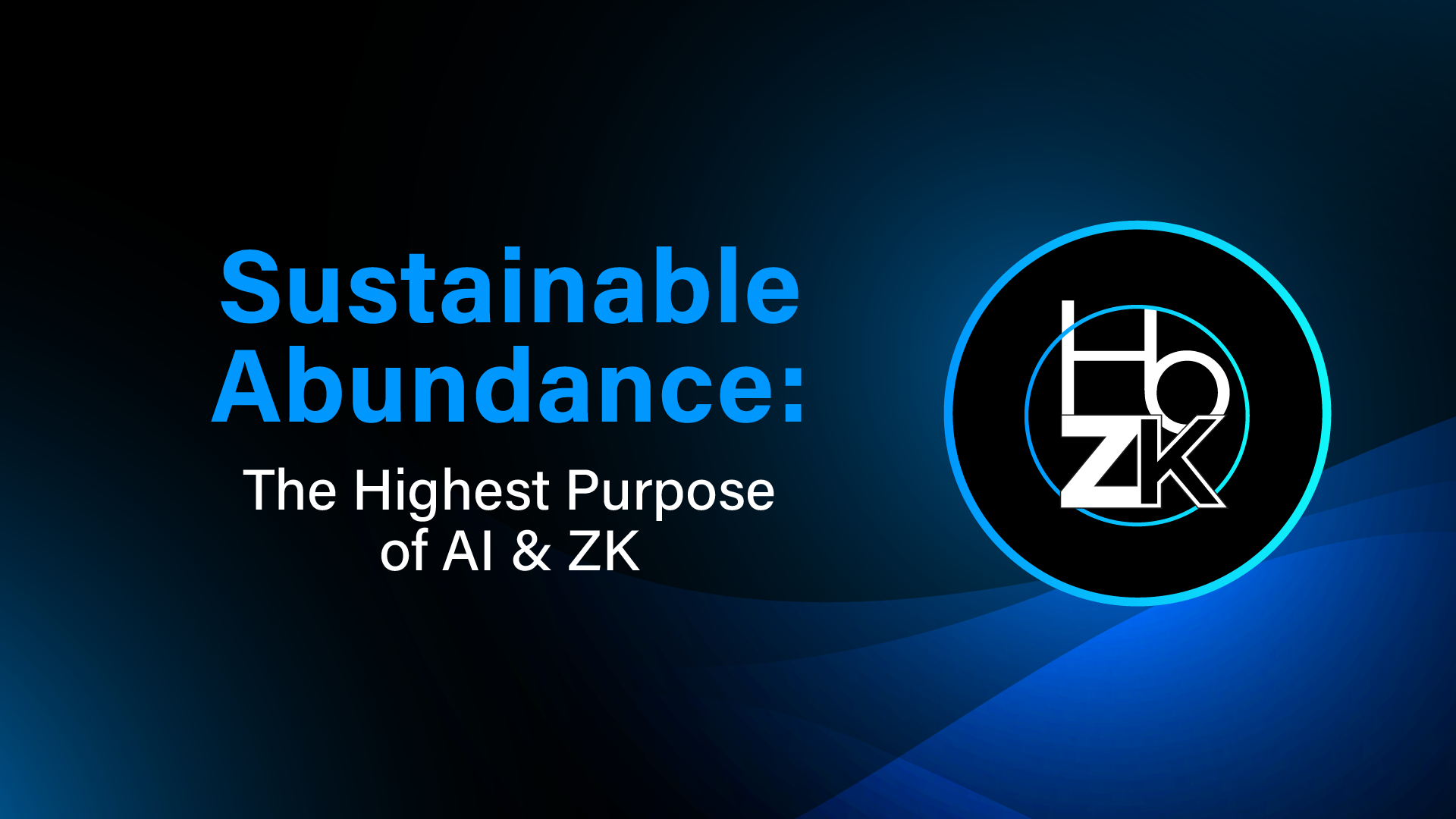
The convergence of artificial intelligence and robotics has made one outcome plausible for the first time in human history: sustainable abundance - a condition where productivity and resource availability are no longer constrained by human labor or physical scarcity. The question is no longer whether machines can generate enough; it’s whether we can verify that the systems governing this abundance act in alignment with human and ecological values.
Here, we explore how ZK could provide the missing infrastructure for that verification. It converts AI behavior from something that must be trusted into something that can be proven.
AI and robotics are becoming the dominant inputs of production. Automation across logistics, manufacturing, agriculture, and design increases total output while detaching economic value from human time. As @ElonMusk recently said on The Joe Rogan Experience, “The only way to fix the decline in productive output is AI and robotics… America is going bankrupt without them.”
He’s correct on the macroeconomics: aging populations and debt-heavy economies require exponential efficiency gains just to sustain existing living standards. AI-driven automation can provide those gains - but only if the systems that coordinate it can be trusted.
If every core process in manufacturing, transport, and distribution is governed by AI, civilization’s supply chain depends on a layer of logic that no one can fully see. Without verifiability, abundance becomes fragile.
Most current AI safety efforts rely on institutional oversight: audits, model cards, alignment boards. These mechanisms are social rather than mathematical. They assume that those operating the systems are both honest and competent - the same assumption that failed in every prior centralized infrastructure model.
In an economy run by autonomous systems, opacity scales faster than trust. When algorithms determine resource distribution, energy output, and even financial issuance, verifiability becomes the new form of accountability.
Sustainable abundance is only sustainable if each system can prove that it operated correctly, safely, and within defined ethical or economic limits. Otherwise, the cost of compounded errors or manipulations could be catastrophic.
Zero-knowledge proofs can solve this problem at the computational layer. They allow a system to demonstrate - mathematically - that a computation was performed correctly without revealing its internal data, model parameters, or proprietary logic.
For AI, this means inference can be verified cryptographically. A model can produce a proof that it reached a conclusion according to an approved architecture, dataset commitment, and policy constraint. The verifier - whether human, machine, or regulator - can check this proof in milliseconds.
ZK provides three critical assurances:
ZK transforms AI from a system of opaque claims into one of provable computation - an essential step toward building a verifiable civilization.
When production, finance, and governance all depend on AI, the infrastructure of abundance must be checkable from first principles. ZK makes this possible through a layered structure:
In this model, proof replaces trust as the coordination medium. The more automation scales, the stronger the verification guarantees become.
Elon Musk’s recent discussion with @JoeRogan captures the core tension of the next era: the potential of automation is to bring about universal high income and the end of material scarcity, but also introduces dependence on opaque systems. “Ultimately, working will be optional”, Elon said. “Everyone can have whatever goods and services they want.”
That scenario - universal access to goods and services - only remains stable if the systems distributing them are verifiable. A failure in a centralized, unverified AI layer could collapse the very abundance it produces.
ZK is the technical substrate that converts this vision from utopian to feasible. It enables publicly checkable truth in a world run by machines - allowing abundance to be both produced and trusted.
AI safety discussions often revolve around alignment: ensuring models are “truth-seeking” or share human values. But even a well-aligned model cannot be proven safe without verifiable computation. Alignment is philosophy; proof is engineering.
Zero-knowledge proofs let society specify policies in mathematical form - constraints on energy usage, fairness, or access - and verify them automatically. In doing so, they replace moral assurances with cryptographic evidence.
This is how sustainable abundance can become structurally stable. Economic coordination can scale beyond human supervision because the verification of fairness, safety, and compliance is embedded in the computation itself.
AI and robotics can generate abundance. Zero-knowledge proofs can preserve it.
Together, they define a civilization where production, governance, and intelligence operate on verifiable logic - a prerequisite for a world where material need disappears without collapsing into control or chaos.
Sustainable abundance, as Elon Musk describes it, is achievable only when every intelligent system that produces it can prove its correctness.
Zero-knowledge is how humanity gets there.